Akita Temperament and Behavior: Unraveling the Extraordinary Nature of These Majestic Dogs
Welcome to our comprehensive guide on Akita temperament and behavior. As avid enthusiasts of these majestic dogs, we are here to provide you with an in-depth understanding of their unique traits, personalities, and characteristics. Akita, also known as Akita Inu, is a breed that originated in Japan and has captured the hearts of countless dog lovers worldwide. Throughout this article, we will explore what makes the Akita stand out from other breeds, uncover the intricacies of their temperament, and discuss their behavior in various environments.
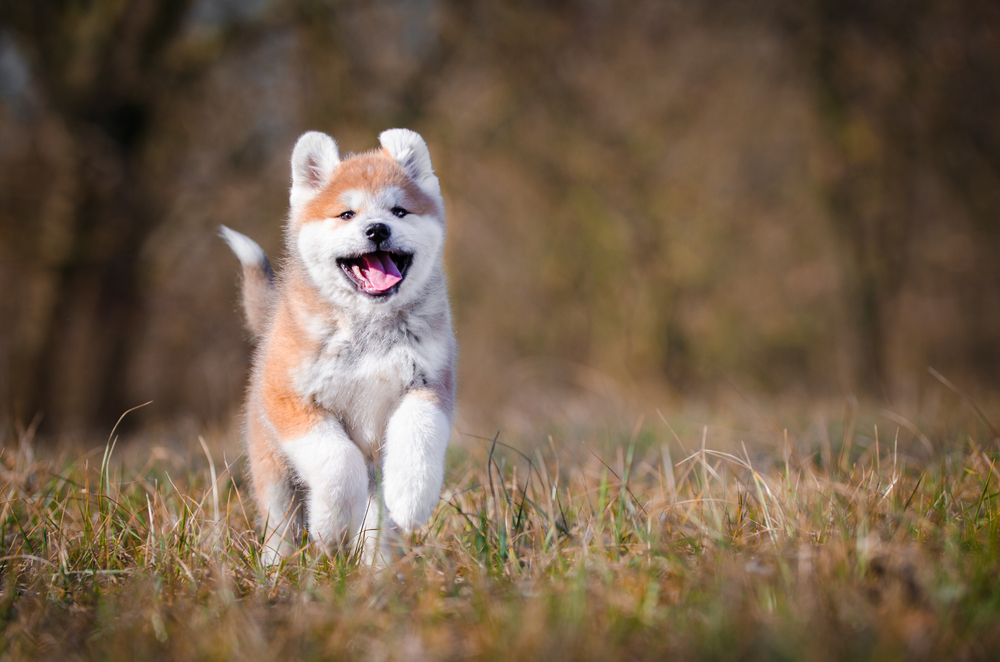
Origins and Historical Significance
Before delving into the temperament and behavior of Akita dogs, let’s take a moment to explore their roots and historical significance. The Akita breed dates back to ancient times in Japan, where they were initially bred for noble and imperial purposes. Their strength, loyalty, and striking appearance made them ideal guardians for emperors and aristocrats. Over the centuries, Akitas became symbols of loyalty and were often bestowed as prestigious gifts. However, their roles evolved during World War II, where they were used as versatile working dogs and even as symbols of good luck.
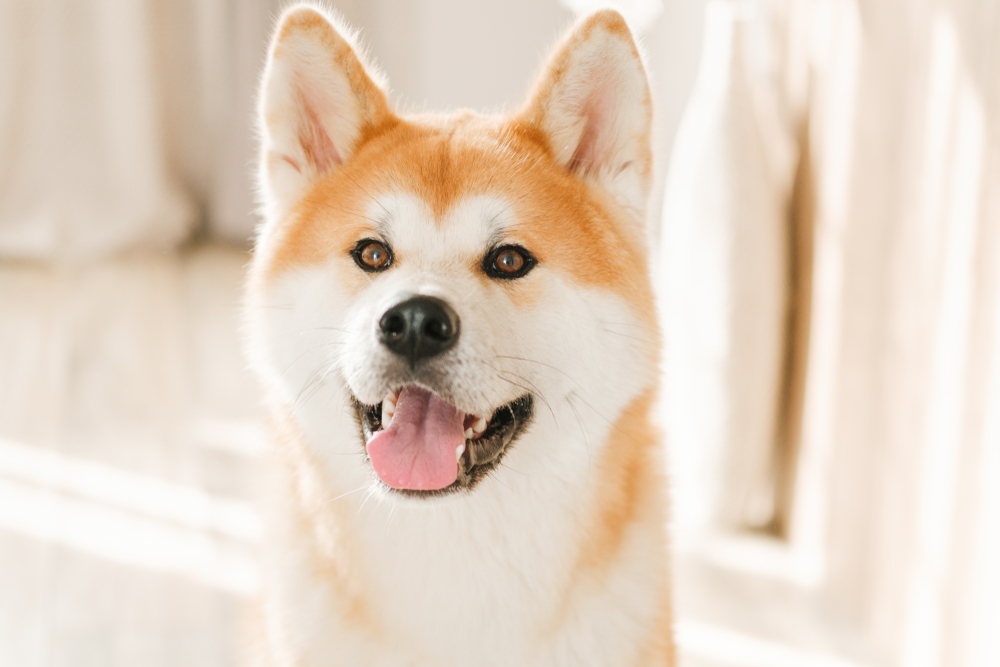
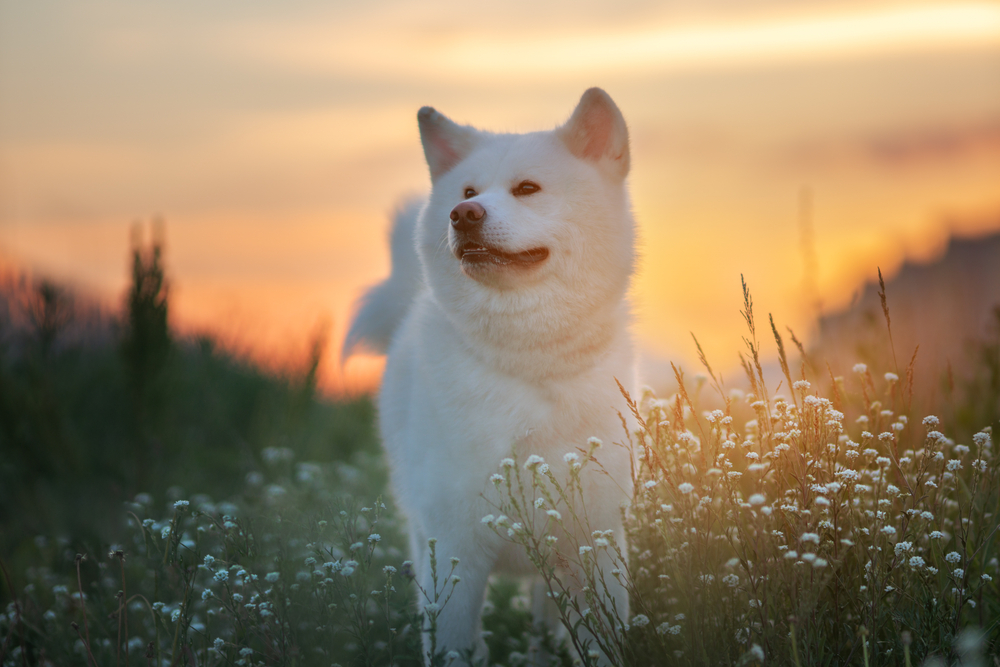
Physical Characteristics
Akitas are undoubtedly impressive in their physical appearance, boasting a powerful and robust build. These dogs have a sturdy frame, well-developed muscles, and a double coat that provides insulation against harsh weather conditions. Their dignified expression, paired with their small, triangular eyes, adds an aura of intelligence and intensity to their demeanor. Akitas typically have erect ears, a broad forehead, and a curled tail that rests gracefully on their back. Male Akitas usually stand between 26 to 28 inches in height and weigh around 100 to 130 pounds, while females are slightly smaller, ranging from 24 to 26 inches and weighing between 70 to 100 pounds.
The Akita Temperament: A Complex Balance
Akitas are renowned for their complex temperament, which is a unique balance of loyalty, independence, and aloofness. These dogs are incredibly devoted to their families, forming strong bonds with their human companions. However, they also exhibit an independent streak, which can sometimes be misunderstood as stubbornness. Proper training and socialization from an early age are crucial to harness their intelligence and ensure a harmonious relationship with their owners.
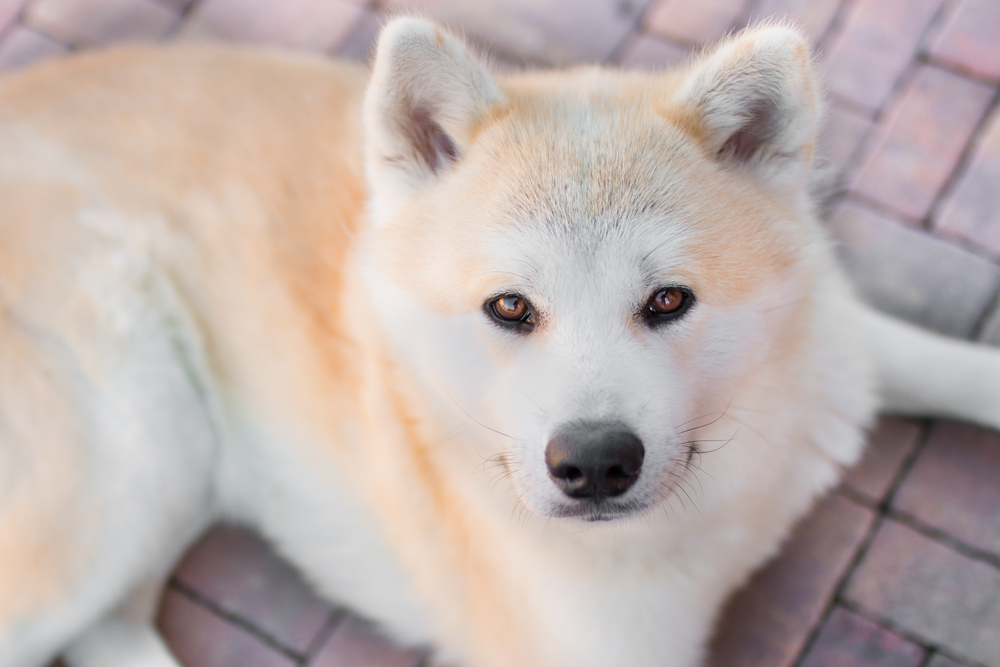
Loyalty and Protective Nature
One of the most endearing qualities of Akitas is their unwavering loyalty. Once they establish a bond with their family, they will go to great lengths to protect and defend them. This protective instinct can make them exceptional guard dogs, but it also means they may be reserved or wary around strangers. Early socialization is vital to instill confidence and teach them to distinguish between friend and foe.
Akita's Interaction with Children and Other Pets
Despite their protective nature, Akitas can form deep bonds with children when introduced and raised together. They often display remarkable patience and gentleness towards their little human companions. However, supervision is crucial, especially with younger children, as their sheer size may unintentionally cause accidents. When it comes to other pets, Akitas may exhibit a dominant demeanor, particularly with dogs of the same sex. Again, early socialization and proper introductions are essential to ensure peaceful coexistence.
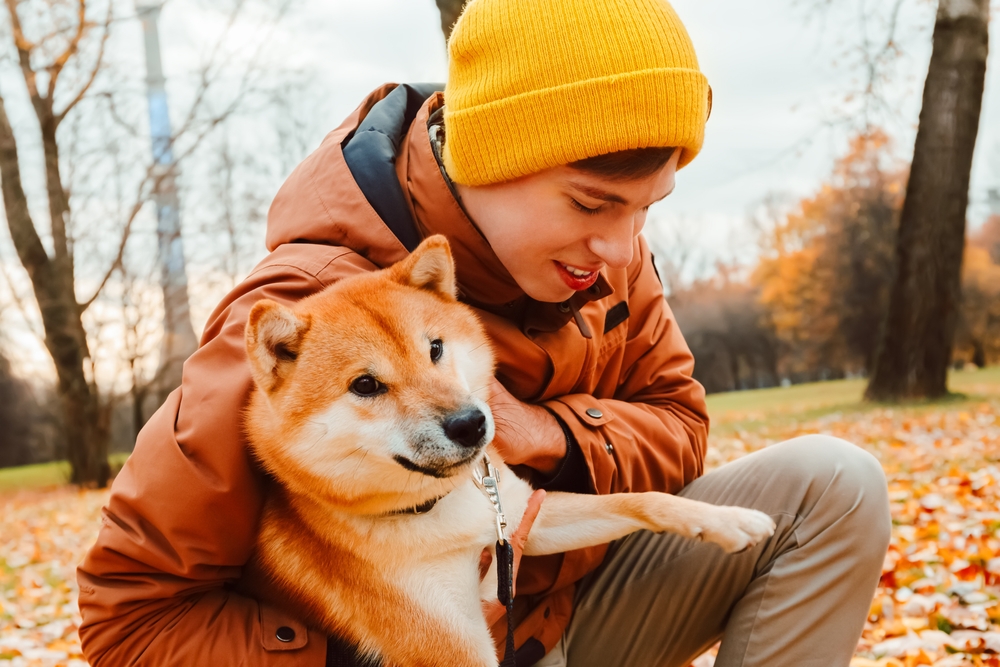
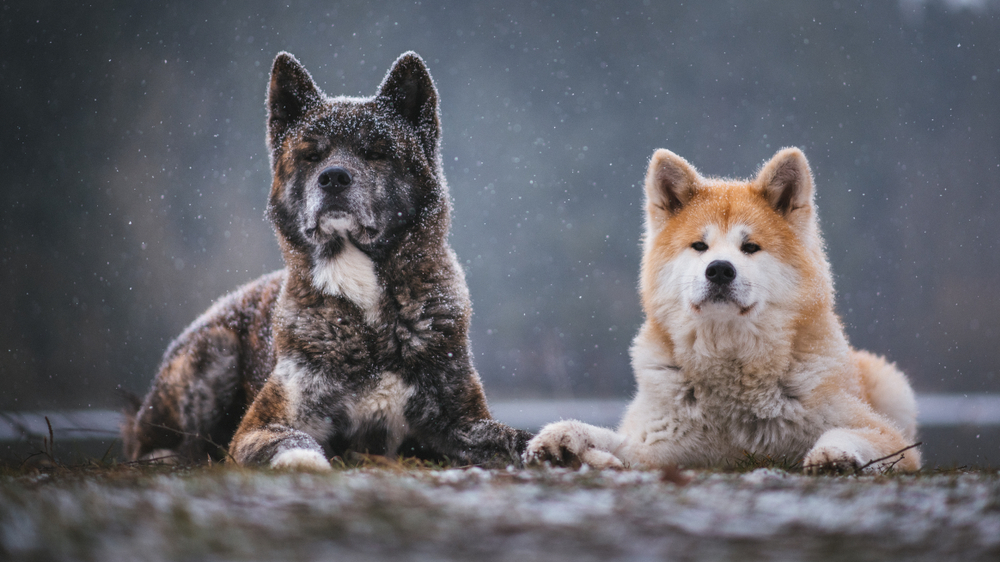
Exercise Needs and Mental Stimulation
Akitas may appear calm and composed indoors, but they have an innate need for physical activity and mental stimulation. Regular exercise, such as daily walks and playtime, helps prevent boredom and reduces the likelihood of destructive behaviors. Mental stimulation can be achieved through puzzle toys, training sessions, and interactive games, which also foster their problem-solving abilities.
Grooming and Coat Care
The Akita’s thick double coat requires regular grooming to maintain its health and appearance. Weekly brushing helps control shedding and keeps their fur tangle-free. However, during shedding seasons, Akitas “blow” their coat, necessitating more frequent brushing to manage loose fur effectively. Additionally, routine nail trimming, ear cleaning, and dental care are essential parts of their grooming routine.
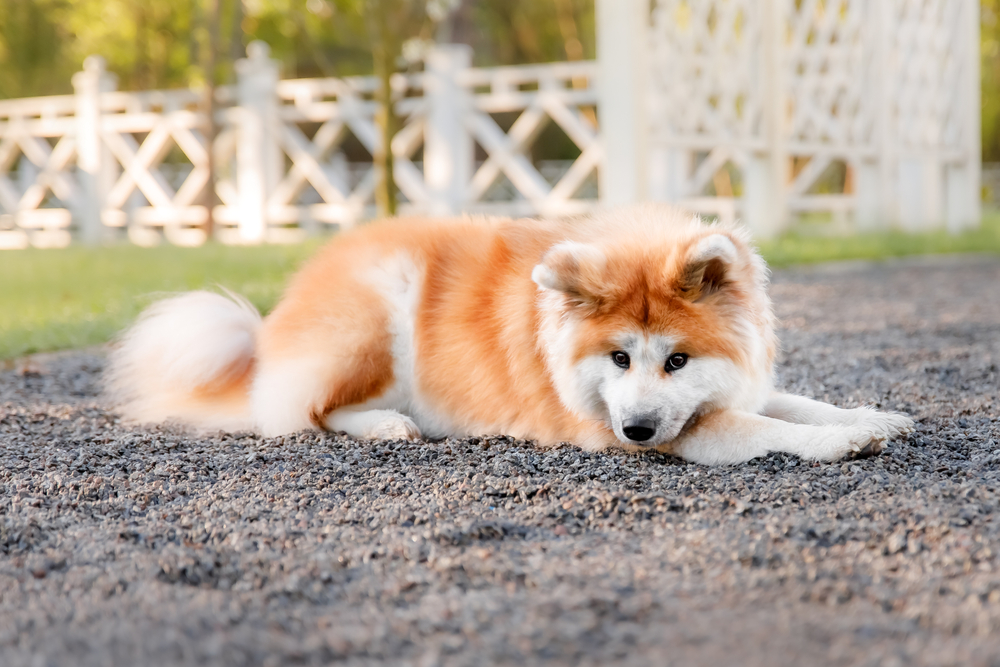
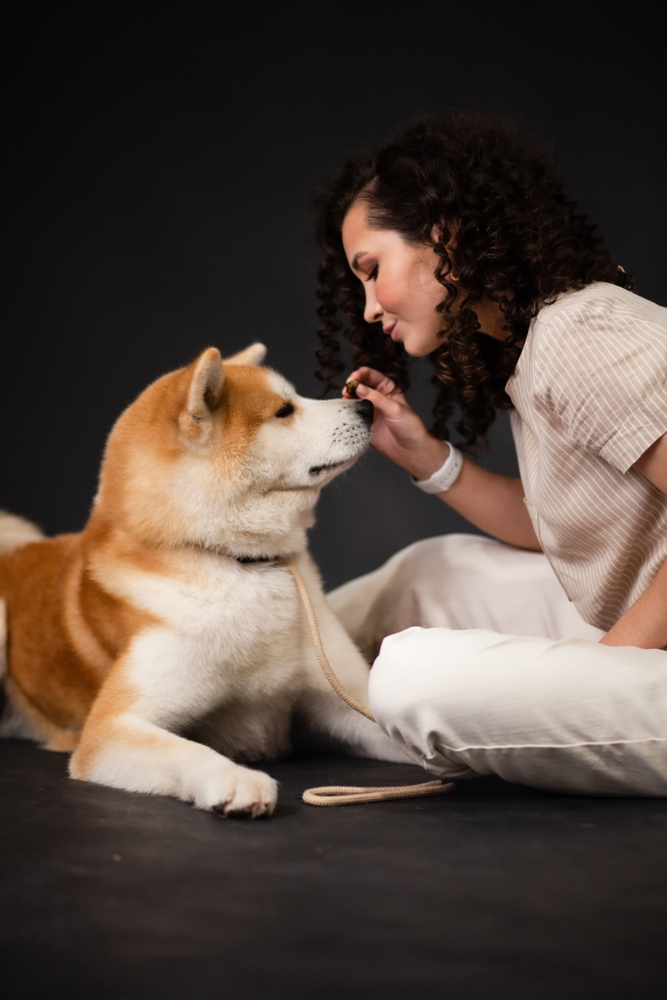
Akita Behavior: Understanding their Unique Traits
To truly appreciate the Akita breed, understanding their behavior in various scenarios is essential. Let’s explore how Akitas behave in different settings and circumstances.
1. Akita at Home
At home, Akitas are typically calm and composed, exhibiting a gentle and loving nature towards their family members. They are content to be close to their human companions, whether it’s cuddling on the couch or simply lying at their feet. Their loyalty is evident in their willingness to protect and defend their household, making them excellent watchdogs.
2. Akita with Strangers
When confronted with unfamiliar people, Akitas may remain aloof and reserved. Their cautious nature means they won’t readily warm up to strangers. However, proper socialization can help them become more accepting and less wary of new faces.
3. Akita with Other Pets
As mentioned earlier, Akitas can display dominant behavior towards other pets, especially those of the same sex. Early socialization, positive reinforcement training, and proper introductions are vital to ensure they coexist peacefully with other animals.
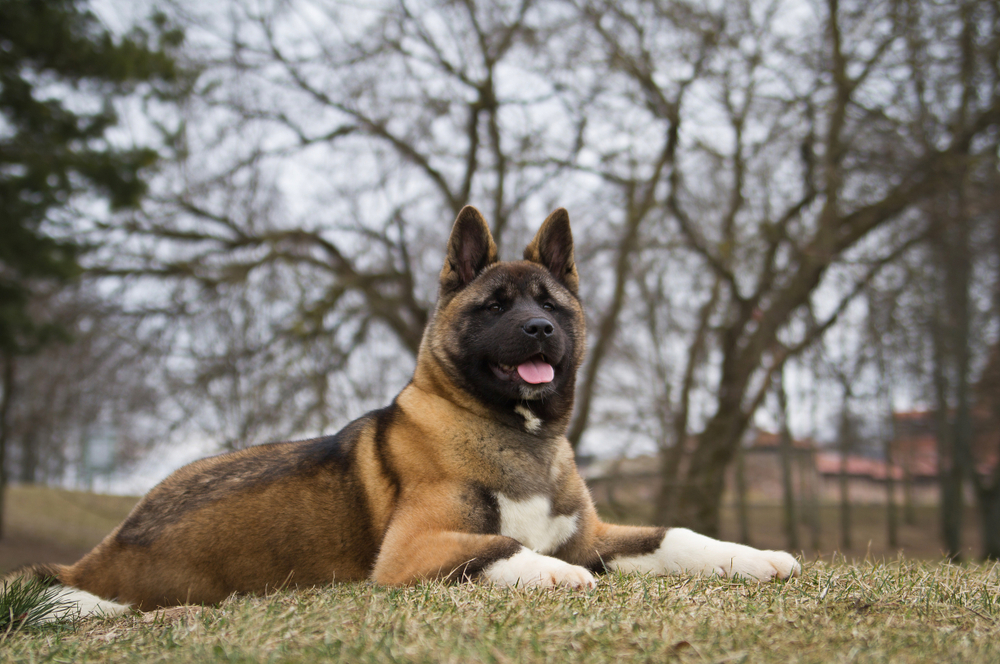
Akita Temperament and Behavior
Akita temperament and behavior are a fascinating mix of loyalty, independence, and protectiveness. These majestic dogs make excellent companions for families who understand and appreciate their unique traits. With the right training, socialization, and care, Akitas can flourish in various environments and prove to be extraordinary additions to any loving home.